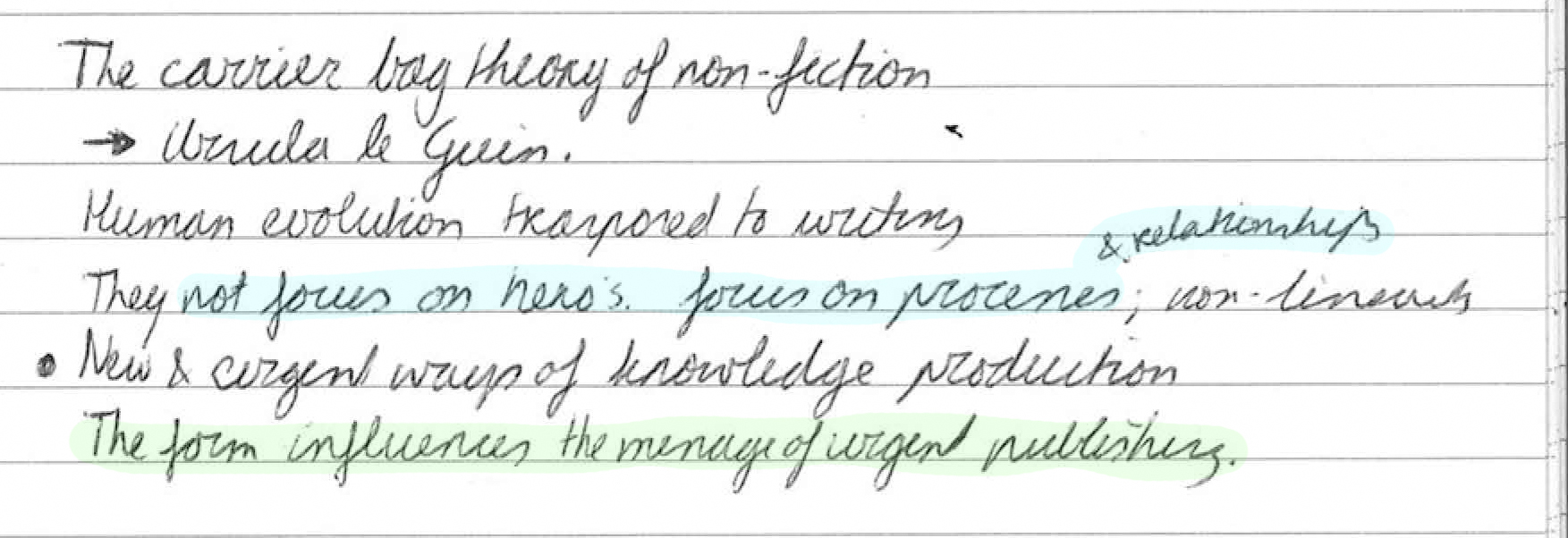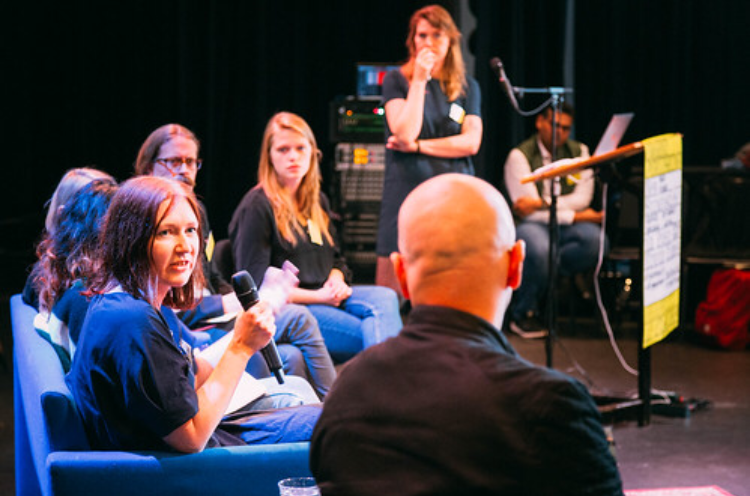Title: The Carrier Bag Theory of Non-Fiction
Subtitle: Presentations and discussions with Janneke Adema & Gary Hall, Axel Andersson, and Lídia Pereira, Moderated by Miriam Rasch.
Date:
Authors:
## Introduction
~~What promises does~~ modular, non-linear publishing ~~hold for writing and reading, research and collaboration? What~~ potentialities of collectivity, collaboration, ~~and commons can~~ hybrid publishing processes ~~set free? How would that challenge existing roles and practices? Modularity in form and process, after proving itself in software development, has conquered the world at large. It fits the dynamics of the market and allows us to communicate in bits and pieces, fierce, hyped-up, and snappy. Efficient medium, efficient messages.~~
~~But modularity and non-linearity also contain a notion of critique. They can challenge myths of origin and originality,~~ definitive truths. ~~They can inspire a *Carrier Bag Theory of Non-Fiction*:~~ places, ~~and futures?~~

### The Carrier Bag Theory of Non-Fiction
*Janneke Adema & Gary Hall investigate modular publishing from a post-humanities perspective*



Janneke Adema and Gary Hall criticize what publishing does rather than what it is. According to them, Where should we cut them? Who is making decisions? Who moderates the decisions? What’s kept/ what’s preserved in the process?


### Pervasive Labour Union zine

*Lydia Pereira presents Pervasive Labour Union Zine which brings together personal rants, academic texts, poetry, photo montages, collages, drawings, etc. addressing topics such as Terms of Service, Advertisement or Pervasiveness. Each issue attempts to establish an interconnecting discourse around these topics.*
Lidia Pereira’s graduation project, touching upon the topic of labour on social platforms which later becomes a product designed by social experiences, questions why we are not organizing. According to her, it’s because we don’t consider it work. That’s how she came up with a zine, as a research medium for her research to continue growing.

During the discussion the following questions were raised: Why do old formats persist? Who has the privilege to own the new platforms? What is the future of archive?

### Post-digital Publishing and the Return of Locality.
*Axel Andersson investigates the role of locality for contemporary Publishing.*

Then Axel, oh Axel Andersson, who was asked not to give an academic ted talk, did not mind sharing a B&W image of him, in which he is thinking about Smithson; a fact which opened up his presentation of thoughts on topics of locality and post-digital publishing. As his position of being a critic was challenged by extinction, he was faced with having to experiment his way forward and think what might be wrong with media that critique doesn’t work? and the last mass mail at the Supermarket art fair (2018) where a critical journal written by the visitors is printed on spot, are projects that call for further thinking about how to be in the context?

The context in this case, can be further defined as not a place, but physicality which has locality…In other words: How to expand public/private spheres?
Blog by Maisa Imamović, remixed by the editors.